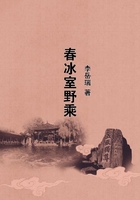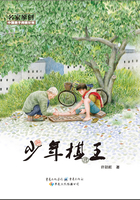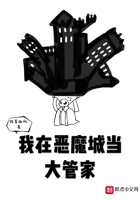Few things can exceed the characters of human beings in variety.
There must be something abstractedly in the nature of mind, which renders it accessible to these varieties. For the present we will call it taste. One man feels his spirits regaled with the sight of those things which constitute wealth, another in meditating the triumphs of Alexander or Caesar, and a third in viewing the galleries of the Louvre. Not one of these thinks in the outset of appropriating these objects to himself; not one of them begins with aspiring to be the possessor of vast opulence, or emulating the triumphs of Caesar, or obtaining in property the pictures and statues the sight of which affords him so exquisite delight. Even the admirer of female beauty, does not at first think of converting this attractive object into a mistress, but on the contrary desires, like Pygmalion, that the figure he beholds might become his solace and companion, because he had previously admired it for itself.
Just so the benevolent man is an individual who finds a peculiar delight in contemplating the contentment, the peace and heart's ease of other men, and sympathises in no ordinary degree with their sufferings. He rejoices in the existence and diffusion of human happiness, though he should not have had the smallest share in giving birth to the thing he loves. It is because such are his tastes, and what above all things he prefers, that he afterwards becomes distinguished by the benevolence of his conduct.
The reflex act of the mind, which these new philosophers put forward as the solution of all human pursuits, rarely presents itself but to the speculative enquirer in his closet. The savage never dreams of it. The active man, engaged in the busy scenes of life, thinks little, and on rare occasions of himself, but much, and in a manner for ever, of the objects of his pursuit.
Some men are uniform in their character, and from the cradle to the grave prefer the same objects that first awakened their partialities. Other men are inconsistent and given to change, are "every thing by starts, and nothing long." Still it is probable that, in most cases, he who performs an act of benevolence, feels for the time that he has a peculiar delight in contemplating the good of his fellow-man.
The doctrine of the modern philosophers on this point, is in many ways imbecil and unsound. It is inauspicious to their creed, that the reflex act of the mind is purely the affair of experience. Why did the liberal-minded man perform his first act of benevolence? The answer of these persons ought to be, because the recollection of a generous deed is a source of the truest delight. But there is an absurdity on the face of this solution.
We do not experimentally know the delight which attends the recollection of a generous deed, till a generous deed has been performed by us. We do not learn these things from books. And least of all is this solution to the purpose, when the business is to find a solution that suits the human mind universally, the unlearned as well as the learned, the savage as well as the sage.
And surely it is inconsistent with all sound reasoning, to represent that as the sole spring of our benevolent actions, which by the very terms will not fit the first benevolent act in which any man engaged.
The advocates of the doctrine of "self-love the source of all our actions," are still more puzzled, when the case set before them is that of the man, who flies, at an instant's warning, to save the life of the child who has fallen into the river, or the unfortunate whom he beholds in the upper story of a house in flames. This man, as might be illustrated in a thousand instances, treats his own existence as unworthy of notice, and exposes it to multiplied risks to effect the object to which he devotes himself.
They are obliged to say, that this man anticipates the joy he will feel in the recollection of a noble act, and the cutting and intolerable pain he will experience in the consciousness that a human being has perished, whom it was in his power to save. It is in vain that we tell them that, without a moment's consideration, he tore off his clothes, or plunged into the stream with his clothes on, or rushed up a flaming stair-case.
Still they tell us, that he recollected what compunctious visitings would be his lot if he remained supine--he felt the sharpest uneasiness at sight of the accident before him, and it was to get rid of that uneasiness, and not for the smallest regard to the unhappy being he has been the means to save, that he entered on the hazardous undertaking.
Uneasiness, the knowledge of what inwardly passes in the mind, is a thing not in the slightest degree adverted to but in an interval of leisure. No; the man here spoken of thinks of nothing but the object immediately before his eyes; he adverts not at all to himself; he acts only with an undeveloped, confused and hurried consciousness that he may be of some use, and may avert the instantly impending calamity. He has scarcely even so much reflection as amounts to this.
The history of man, whether national or individual, and consequently the acts of human creatures which it describes, are cast in another mould than that which the philosophy of self-love sets before us. A topic that from the earliest accounts perpetually presents itself in the records of mankind, is self-sacrifice, parents sacrificing themselves for their children, and children for their parents. Cimon, the Athenian, yet in the flower of his youth, voluntarily became the inmate of a prison, that the body of his father might receive the honours of sepulture. Various and unquestionable are the examples of persons who have exposed themselves to destruction, and even petitioned to die, that so they might save the lives of those, whose lives they held dearer than their own. Life is indeed a thing, that is notoriously set at nothing by generous souls, who have fervently devoted themselves to an overwhelming purpose.














